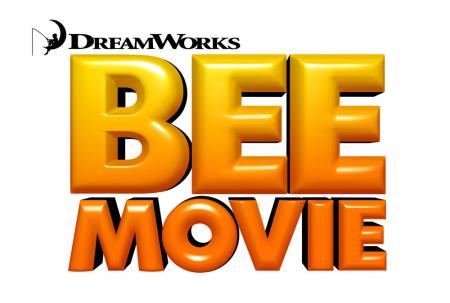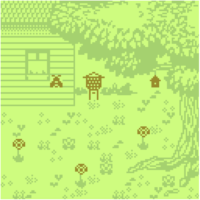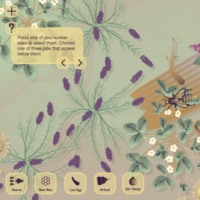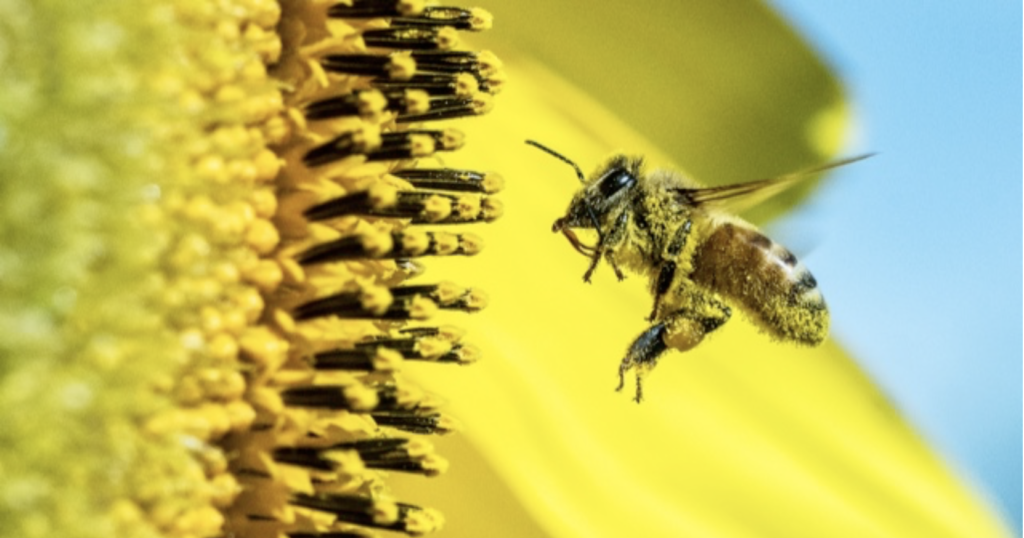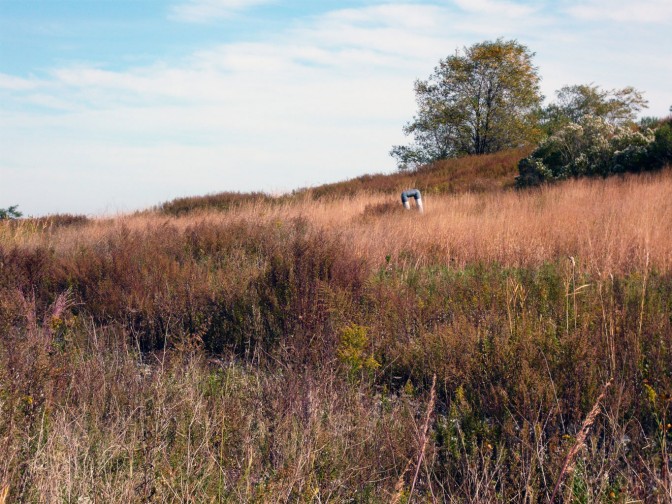What’s the Buzz on Bee movie
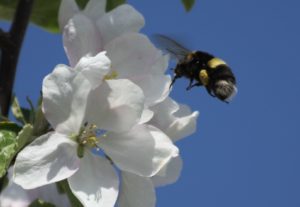
A Bumble Bee pollinating an Apple Tree
All life is supported by pollinators. Pollinators are essential for plant reproduction because they move pollen from one part of the plant to another which helps the plant produce seeds. Bees are one of the most well-known pollinators on the planet, but flies, butterflies, bats, and birds also play an important role in plant reproduction. About 35% of the world’s food and almost 90% of the world’s flowering plants depend on pollinators for reproduction. Apples, cherries, bananas, and even coffee and chocolate depend on pollinators to reproduce and humans in turn depend on those foods to survive.
Did you know that not all bee pollinators are created equal? That fuzzy, black-and-yellow striped bee, also known as the European honey bee, is one of the most common and recognizable. The European honey bee was domesticated in the 17th century, and they can produce enough honey to be commercially harvested. However, as its name suggests, the European honey bee is not native to New York. Native bees may not produce honey, but they are more effective pollinators. Native bees, like the Blue Orchard bee and the Common Eastern Bumblebee are crucial for the production of alfalfa, melons, cranberries, blueberries, soy and sunflowers.
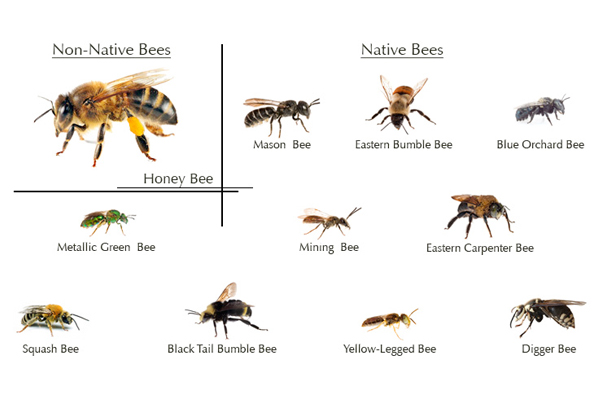
So when it comes to saving the bees, we also need to focus on native bee species. A native species lives and thrives in its natural habitat, while invasive species populate an area that is not their own, often wreaking havoc on the local ecosystem. Many native pollinators, as well as native ecosystems, have been lost through habitat destruction associated with development and climate change. Studies also show that pesticides used in farming may be more detrimental to native bees than honey bees. Ecosystems that support native plants, like the grasslands at Freshkills Park, provide important healthy pollinator habitat.
To bring the outside in, Freshkills staff are revisiting popular movies with Fresh perspectives. This week’s FreshFlick is Bee Movie by Dreamworks bee-cause it demonstrates the importance of bees as pollinators. As we watch this old favorite, we ask ourselves, “Why are pollinators so essential?” and “How can we protect native pollinators?”
Freshkills FreshFlick of the week is Bee Movie
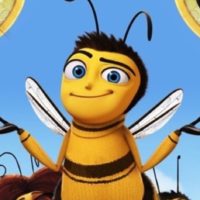 In Bee Movie we meet Barry, a young, idealistic, humanized bee. Barry is fresh out of school and, like many recent graduates, questioning seemingly unshakable social structures. In his beehive, all bees are assigned a specific role, and work together for the overall success of the hive. Knowing that Barry lives in a highly structured colony means that he must be a honey bee or bumblebee, because most wild bee species live in individual nests tunneled in the soil or in tree trunks. Only social bees, like honey bees and bumblebees produce honey. Barry gets the opportunity to join the Pollen Jocks, the foragers, and learns about “Pollen Power.”
In Bee Movie we meet Barry, a young, idealistic, humanized bee. Barry is fresh out of school and, like many recent graduates, questioning seemingly unshakable social structures. In his beehive, all bees are assigned a specific role, and work together for the overall success of the hive. Knowing that Barry lives in a highly structured colony means that he must be a honey bee or bumblebee, because most wild bee species live in individual nests tunneled in the soil or in tree trunks. Only social bees, like honey bees and bumblebees produce honey. Barry gets the opportunity to join the Pollen Jocks, the foragers, and learns about “Pollen Power.”
Barry leaves his home in the park and buzzes away on a journey that brings him to managed beehives. There he learns that humans cultivate bees to steal and then sell their honey. When it comes time to harvest, humans blow smoke into the managed beehives to put the bees to sleep so humans can safely remove the honey without getting stung. In a shocking twist of events, Barry gets in touch with his litigious side and successfully sues the humans for their mistreatment of bees. After winning the lawsuit, and their honey back, the bees decide to retire.
That’s when we realize we cannot survive without bees because when the bees retire, the plants die. What follows In Bee Movie, is a hasty and unprobable rescue of flowers in a rose parade which in turn jump-starts pollination and saves the world from ecological collapse. In the real world, we need to support bees and other pollinators by protecting their native habitats from pesticides, development and climate change. The New York City Parks Department has several initiatives to protect pollinator habitat, including planting native plants from the Greenbelt Native Plant Center, growing micro-gardens in Greenstreets and planting pollinator gardens in parks.
National Pollinator Week is just around the corner and starts on June 22, 2020. Planning and planting a pollinator garden is a great way to support bees and other pollinators that are essential for a healthy world.
Upcycle your Stream time with STEAM!
Bee Movie provides a fun introduction to the importance of pollinators in the global ecosystem. However, the movie sacrifices ecological complexity while pandering to the idea that all bees produce honey.
 We give this FreshFlick a “Bee”, for not crediting native pollinators and their role in pollination, crop production and sustaining habitats. Tune in this Wednesday to learn how plants disperse their seeds after they have been pollinated.
We give this FreshFlick a “Bee”, for not crediting native pollinators and their role in pollination, crop production and sustaining habitats. Tune in this Wednesday to learn how plants disperse their seeds after they have been pollinated.
Has Bee Movie made you more curious about bees and pollinators. All week we will be sharing resources across social media bringing attention to native pollination and activities to enjoy at home.
Have a favorite moment or take away from Bee movie or thoughts on native pollinators. Share with us on social media, tagging #FreshkillsUpStream
Interested in exploring native pollinators and bees further?
Videogames are an easy way to pass the time, and they can also bee a learning tool. Check out “Every Bee video game reviewed by accuracy” with honeycomb ratings and links. We recommend, Ha-bee-tat, for introducing lesser known “wild bees” as they try to find their way home. For fun with friends, try Monarchies. It’s an online multiplayer strategy game to create a colony with anatomically correct graphics and semi accurate roles. With over a dozen to choose from, play them all. Let us know which ones you enjoyed.
If you find yourself more of a book worm, or part of a virtual book club, check out these 18 Buzzworthy Bee Books, with recommendations across all reading demographics.

